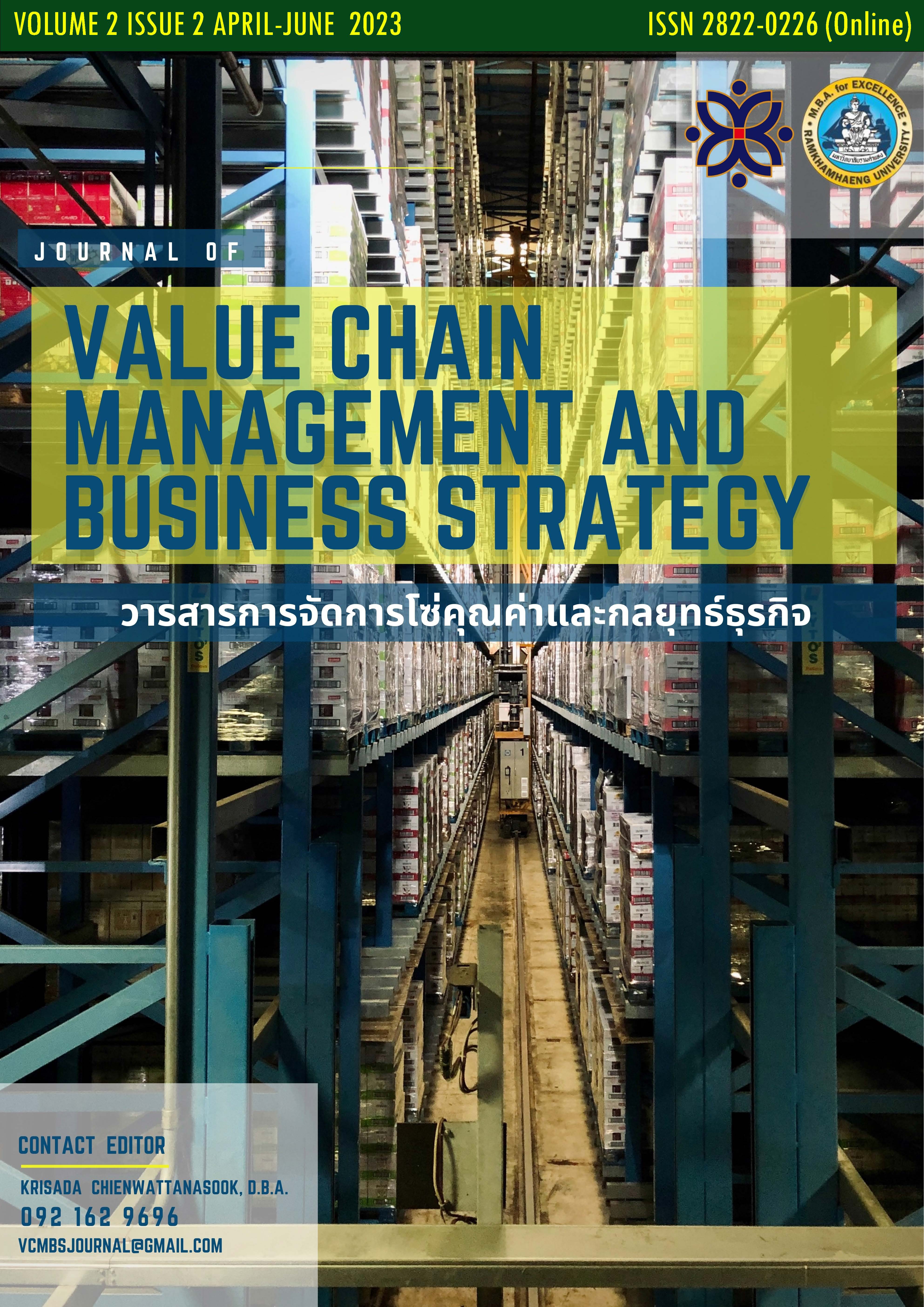ผลกระทบของทัศนคติที่มีต่อการบริหารงานองค์กรต่อประสิทธิภาพในการทำงานของข้าราชการในสังกัดกรมการแพทย์ จังหวัดนนทบุรี
คำสำคัญ:
ทัศนคติที่มีต่อการบริหารงานองค์กร , ประสิทธิภาพในการทำงาน , กรมการแพทย์บทคัดย่อ
การวิจัยนี้มีวัตถุประสงค์เพื่อศึกษาปัจจัยส่วนบุคคลที่ส่งผลต่อประสิทธิภาพในการทำงานของข้าราชการในสังกัดกรมการแพทย์ จังหวัดนนทบุรี และเพื่อศึกษาทัศนคติที่มีต่อการบริหารงานองค์กรที่มีอิทธิพลต่อประสิทธิภาพในการทำงานของข้าราชการในสังกัดกรมการแพทย์ จังหวัดนนทบุรี กลุ่มตัวอย่างที่ใช้ในการวิจัยนี้ คือ ข้าราชการในสังกัดกรมการแพทย์ จังหวัดนนทบุรีที่ปฏิบัติงานในองค์การสังกัดกรมการแพทย์ จังหวัดนนทบุรี จำนวน 296 คน ด้วยวิธีการสุ่มตัวอย่างแบบตามสะดวก โดยใช้แบบสอบถามเป็นเครื่องมือในการเก็บรวบรวมข้อมูล วิเคราะห์ข้อมูลด้วย ค่าความถี่ ร้อยละ ค่าเฉลี่ย ส่วนเบี่ยงเบนมาตรฐาน และทดสอบสมมติฐาน ได้แก่ การทดสอบแบบที การวิเคราะห์ความแปรปรวนทางเดียวและการวิเคราะห์การถดถอยพหุคูณ
ผลการวิจัยพบว่า ความแตกต่างของปัจจัยส่วนบุคคล ได้แก่ เพศ อายุ ระดับการศึกษา รายได้ต่อเดือน และสายงานส่งผลต่อประสิทธิภาพในการทำงานของข้าราชการในสังกัดกรมการแพทย์ จังหวัดนนทบุรี แตกต่างกัน อย่างมีนัยสำคัญทางสถิติที่ระดับ 0.05 และทัศนคติในด้านความรู้ความเข้าใจ ด้านพฤติกรรม และด้านความรู้สึก มีอิทธิพลทางบวกต่อประสิทธิภาพในการทำงานของข้าราชการในสังกัดกรมการแพทย์ จังหวัดนนทบุรี ตามลำดับ อย่างมีนัยสำคัญทางสถิติที่ระดับ 0.05 โดยมีอำนาจในการพยากรณ์ร้อยละ 79.9 ข้อค้นพบดังกล่าวสามารถนำไปใช้ในการกำหนดกลยุทธ์สำหรับการพัฒนาทรัพยากรบุคคลขององค์กรให้สอดคล้องกับความต้องการและความแตกต่างของงานแต่ละประเภท อีกทั้งยังช่วยในการสร้างทัศนคติเชิงบวกที่ส่งเสริมให้เกิดการทำงานได้อย่างมีประสิทธิภาพ
เอกสารอ้างอิง
กรมการแพทย์. (2566). ภารกิจ และหน้าที่รับผิดชอบ. https://www.dms.go.th/AboutUs/About_Mission
กองบริหารทรัพยากรบุคคล. (2565) บัญชีข้าราชการและพนักงานราชการ. https://hrm.dms.go.th/index.php?page=guest-competitive
ธนาคารแห่งประเทศไทย. (2563). เศรษฐกิจโลก เศรษฐกิจไทยหลังโควิด 19 โรคปฏิวัติโลกยกเครื่องสู่อนาคตวิถีชีวิตใหม่. https://www.bot.or.th/Thai/BOTMagazine/Pages/256303_CoverStory.aspx
ลลิตา พรหมปั้น. (2564). การศึกษา ความรู้ ทัศนคติ และการปฏิบัติงานของนักกายภาพบำบัดไทยในงานสร้างเสริมสุขภาพ. เวชสารแพทย์ทหารบก, 74(3), 185-195.
สมชาติ เกตุพันธ์, ณิช วงศ์ส่องจ้า, ณรงค์ กุลนิเทศ และทศพล ชูโชติ. (2563). ทัศนคติ การรับรู้ แนวโน้มพฤติกรรม และการมีส่วนร่วมในการรักษาวัตถุพยาน ที่ส่งผลต่อประสิทธิภาพการปฏิบัติงานของเจ้าหน้าที่มูลนิธิบรรเทาสาธารณภัย. วารสารสันติศึกษาปริทรรศน์ มจร, 8(5), 1886-1898.
สุดารัตน์ สะโดอยู่ และแสงจิตต์ ไต่แสง. (2565). ปัจจัยในการปฏิบัติงานที่ส่งผลต่อประสิทธิภาพในการปฏิบัติงานของพนักงานบริษัท เอลเลค แอนด์ เอลเทค (ประเทศไทย) จำกัด จังหวัดปทุมธานี. วารสารวิทยาการจัดการปริทัศน์, 24(2), 1-10.
อัครเดช ไม้จันทร์ และนุจรีย์ แซ่จิว. (2561). ปัจจัยที่มีผลต่อประสิทธิภาพในการปฏิบัติงานของพนักงานกลุ่มอุตสาหกรรมติดตั้งเครื่องจักรสายการผลิตในจังหวัดสงขลา. วารสารราชภัฏสุราษฎร์ธานี, 5(1), 95-121.
Aguinis, H., & Pierce, C. A. (2012). Enhancing the relevance of organizational behavior by embracing performance management research. Journal of Organizational Behavior, 33(2), 129-145.
Ajzen, I., & Fishbein, M. (2012). Attitudes and the attitude-behavior relation: Reasoned and automatic processes. In Handbook of theories of social psychology (pp. 1-17). Sage Publications Ltd.
Betsch, T., & Haberstroh, S. (2018). The behavioral immune system and attitudes towards vaccines: Negative affect rather than a specific pathogen concern determines vaccine skepticism. Social Science & Medicine, 211, 274-281.
Bruch, H., & Walter, F. (2012). What's your motivational style? Self-assessment tool for a better understanding of how to motivate others. Journal of Management Development, 31(9), 901-913.
Cardon, M. S., & Stevens, C. E. (2012). Managing human resources in small organizations: What do we know? Human Resource Management Review, 22(4), 222-231.
Chen, Y. J., & Chang, H. Y. (2012). Affective commitment to organizations: A comparison study of the US and Taiwan. Journal of Applied Business Research, 28(3), 521-530.
Cho, J., & Lee, H. (2019). The role of self-concept in explaining gender differences in online shopping behavior. Journal of Retailing and Consumer Services, 47, 277-284.
Gharakhani, D., Razavi, S. M., & Moeinzadeh, A. (2012). The impact of attitude on employees’ job performance in service organizations. Procedia-Social and Behavioral Sciences, 41, 263-270.
Hsu, L. C., & Lin, W. H. (2012). The influence of ethical leadership on organizational citizenship behavior: The mediating role of psychological contract fulfillment. Journal of Business Ethics, 108(4), 533-543.
Jang, S. M., & Kim, J. Y. (2016). The influence of cognitive, affective, and behavioral components of attitudes on consumers’ responses to online advertising. Journal of Interactive Advertising, 16(2), 108-119.
Judge, T. A., & Bono, J. E. (2011). Relationship of core self-evaluations traits—self-esteem, generalized self-efficacy, locus of control, and emotional stability—with job satisfaction and job performance: A meta-analysis. Journal of Applied Psychology, 86(1), 80–92.
Latham, G. P., & Locke, E. A. (2012). The effects of goals on organizational behavior and performance. In Handbook of industrial, work and organizational psychology, Volume 2: Organizational psychology (pp. 155-169). Sage Publications Ltd.
Noe, R. A. (2012). Employee training and development (6th ed.). McGraw-Hill Education.
Ongori, H., & Agolla, J. E. (2017). Influence of employee attitude on job performance in the banking sector in Kenya. Journal of Human Resource Management, 5(2), 25-34.
Park, H. S., & Scheufele, D. A. (2014). Examining the cross-cultural validity of the cognitive, affective, and behavioral dimensions of climate change. Science Communication, 36(1), 56-77.
Ranganathan, J., & Prasad, S. (2014). Measuring attitudes using self-report scales: A review of current practice and challenges. ISRN Psychology, 2014, 12.
Turner-McGrievy, G. M., Beets, M. W., Moore, J. B., & Kaczynski, A. T. (2020). Association of cognitive, affective, and behavioral constructs with physical activity behavior in children: A systematic review. Journal of Physical Activity and Health, 17(3), 327-339.
Wood, D., Galloway, T., & Pattie, M. (2012). Cognitive, affective and behavioural components of environmental attitudes. Journal of Environmental Psychology, 32(2), 164-175.
Yamane, T. (1967). Statistics, An Introductory Analysis, 2nd Ed.. Harper and Row.
ดาวน์โหลด
เผยแพร่แล้ว
รูปแบบการอ้างอิง
ฉบับ
ประเภทบทความ
สัญญาอนุญาต
ลิขสิทธิ์ (c) 2023 วารสารการจัดการโซ่คุณค่าและกลยุทธ์ธุรกิจ

อนุญาตภายใต้เงื่อนไข Creative Commons Attribution-NonCommercial-NoDerivatives 4.0 International License.




